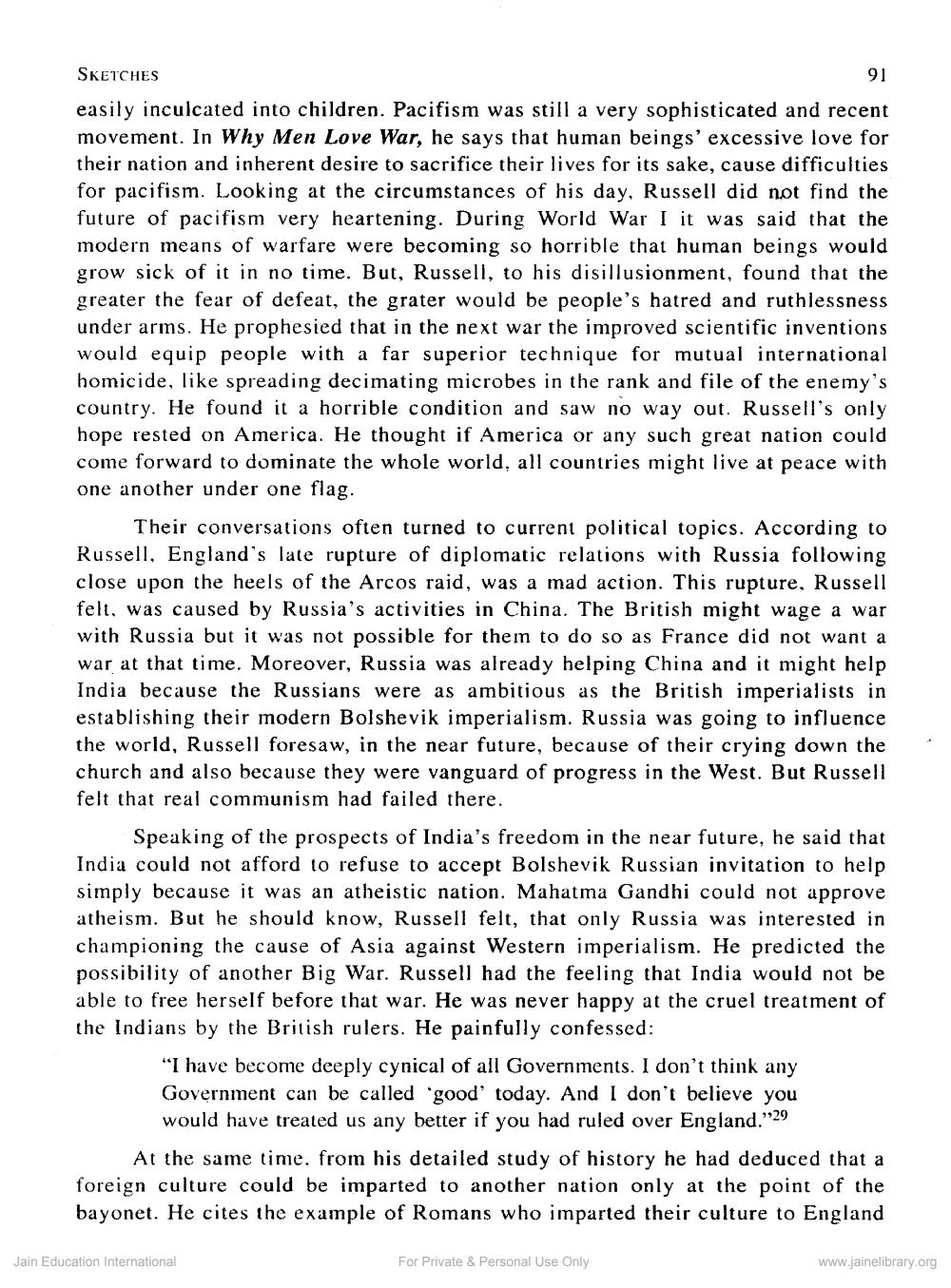________________
SKETCHES
91 easily inculcated into children. Pacifism was still a very sophisticated and recent movement. In Why Men Love War, he says that human beings' excessive love for their nation and inherent desire to sacrifice their lives for its sake, cause difficulties for pacifism. Looking at the circumstances of his day, Russell did not find the future of pacifism very heartening. During World War I it was said that the modern means of warfare were becoming so horrible that human beings would grow sick of it in no time. But, Russell, to his disillusionment, found that the greater the fear of defeat, the grater would be people's hatred and ruthlessness under arms. He prophesied that in the next war the improved scientific inventions would equip people with a far superior technique for mutual international homicide, like spreading decimating microbes in the rank and file of the enemy's country. He found it a horrible condition and saw no way out. Russell's only hope rested on America. He thought if America or any such great nation could come forward to dominate the whole world, all countries might live at peace with one another under one flag.
Their conversations often turned to current political topics. According to Russell, England's late rupture of diplomatic relations with Russia following close upon the heels of the Arcos raid, was a mad action. This rupture, Russell felt, was caused by Russia's activities in China. The British might wage a war with Russia but it was not possible for them to do so as France did not want a war at that time. Moreover, Russia was already helping China and it might help India because the Russians were as ambitious as the British imperialists in establishing their modern Bolshevik imperialism. Russia was going to influence the world, Russell foresaw, in the near future, because of their crying down the church and also because they were vanguard of progress in the West. But Russell felt that real communism had failed there.
Speaking of the prospects of India's freedom in the near future, he said that India could not afford to refuse to accept Bolshevik Russian invitation to help simply because it was an atheistic nation. Mahatma Gandhi could not approve atheism. But he should know, Russell felt, that only Russia was interested in championing the cause of Asia against Western imperialism. He predicted the possibility of another Big War. Russell had the feeling that India would not be able to free herself before that war. He was never happy at the cruel treatment of the Indians by the British rulers. He painfully confessed:
"I have become deeply cynical of all Governments. I don't think any Government can be called 'good' today. And I don't believe you
would have treated us any better if you had ruled over England."29
At the same time. from his detailed study of history he had deduced that a foreign culture could be imparted to another nation only at the point of the bayonet. He cites the example of Romans who imparted their culture to England
Jain Education International
For Private & Personal Use Only
www.jainelibrary.org




